Wedding Venues Tips: How to Choose the Perfect Spot
Planning your wedding is an exciting journey, and one of the most crucial decisions you will make is choosing the perfect venue. This choice sets the tone for your special day and impacts everything from the décor to the guest experience. With so many options available, finding the right venue might feel overwhelming.
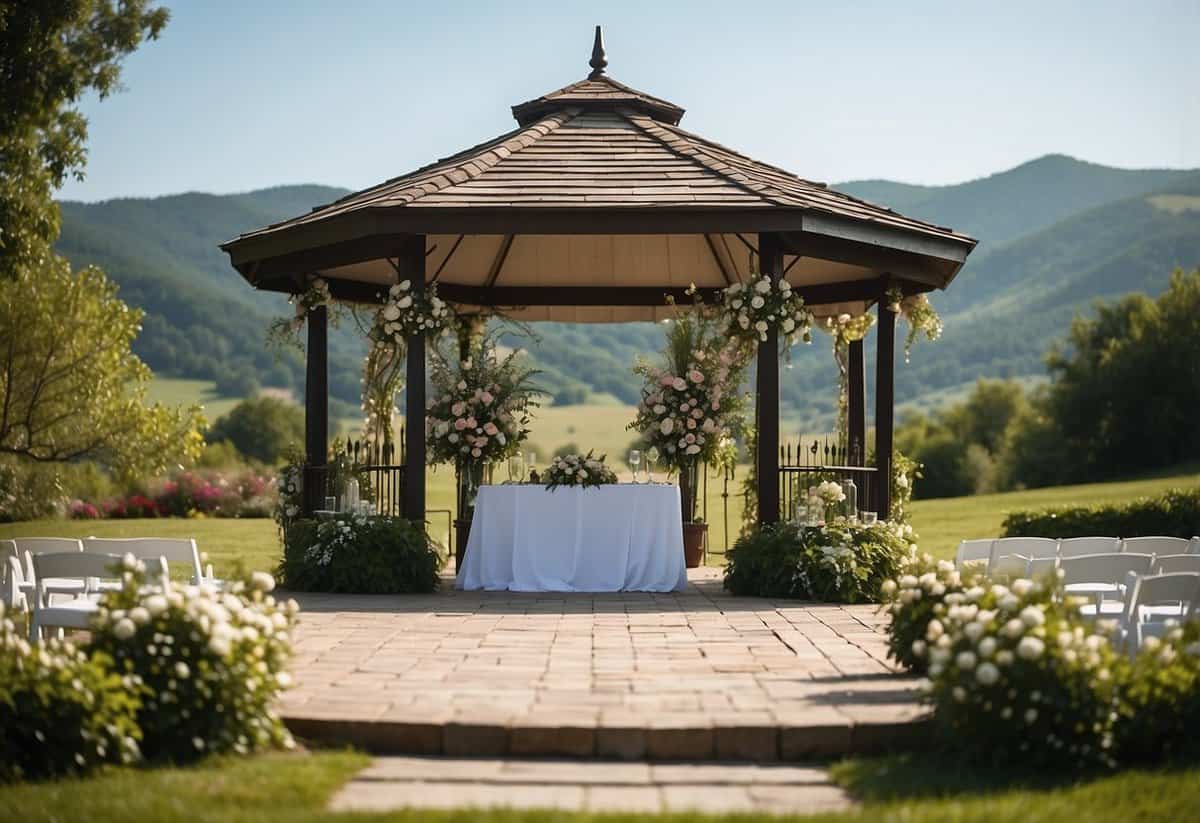
Understanding what to look for in a wedding venue can save you time, stress, and money. From considering your budget to thinking about backup plans for weather changes, there are several key factors to keep in mind. Whether you dream of a grand ballroom or a charming outdoor setting, our tips will help guide you in making the best choice for your unforgettable celebration.
1) Scout Off-Peak Days
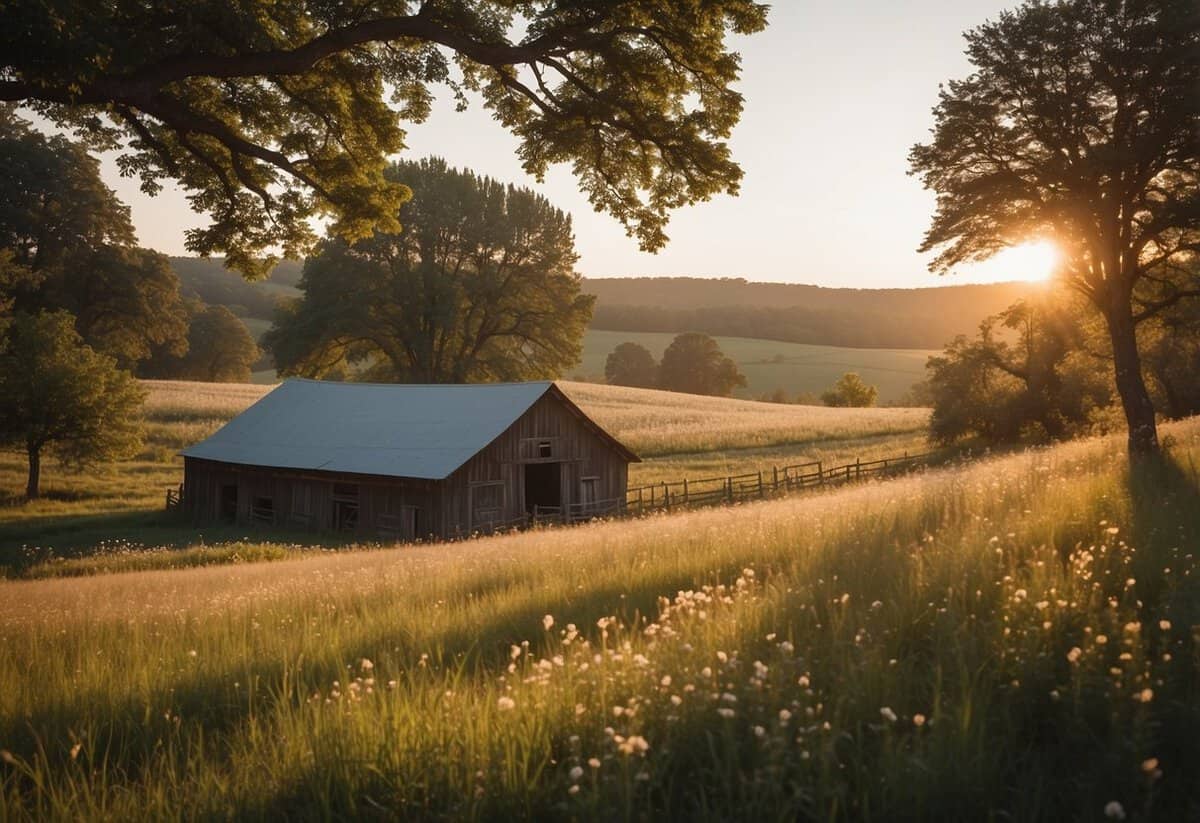
Looking for a wedding venue can be stressful and expensive. Finding the perfect place at a lower cost helps you save money. One way to do this is by scouting off-peak days. Venues often have better deals during weekdays or in months that are less popular for weddings.
You might find that some locations offer special discounts or packages during these times. This can be a great opportunity to get your dream venue at a fraction of the cost. Also, you will likely deal with less competition from other couples.
Besides saving money, choosing an off-peak day can mean better availability for your preferred vendors. Photographers, caterers, and florists may have more open dates and could offer lower rates. This can help make your wedding planning process smoother and more enjoyable.
2) Hire a Day-Of Coordinator

Hiring a day-of coordinator can make your wedding day much smoother. They ensure everything runs on schedule and handle any issues that arise.
Day-of coordinators manage vendors, set up decorations, and keep track of the timeline. This allows you to enjoy your special day without stress.
They work with you in the weeks leading up to the wedding to understand your plans. On the day, they make sure every detail is perfect.
3) Consider All-Inclusive Packages
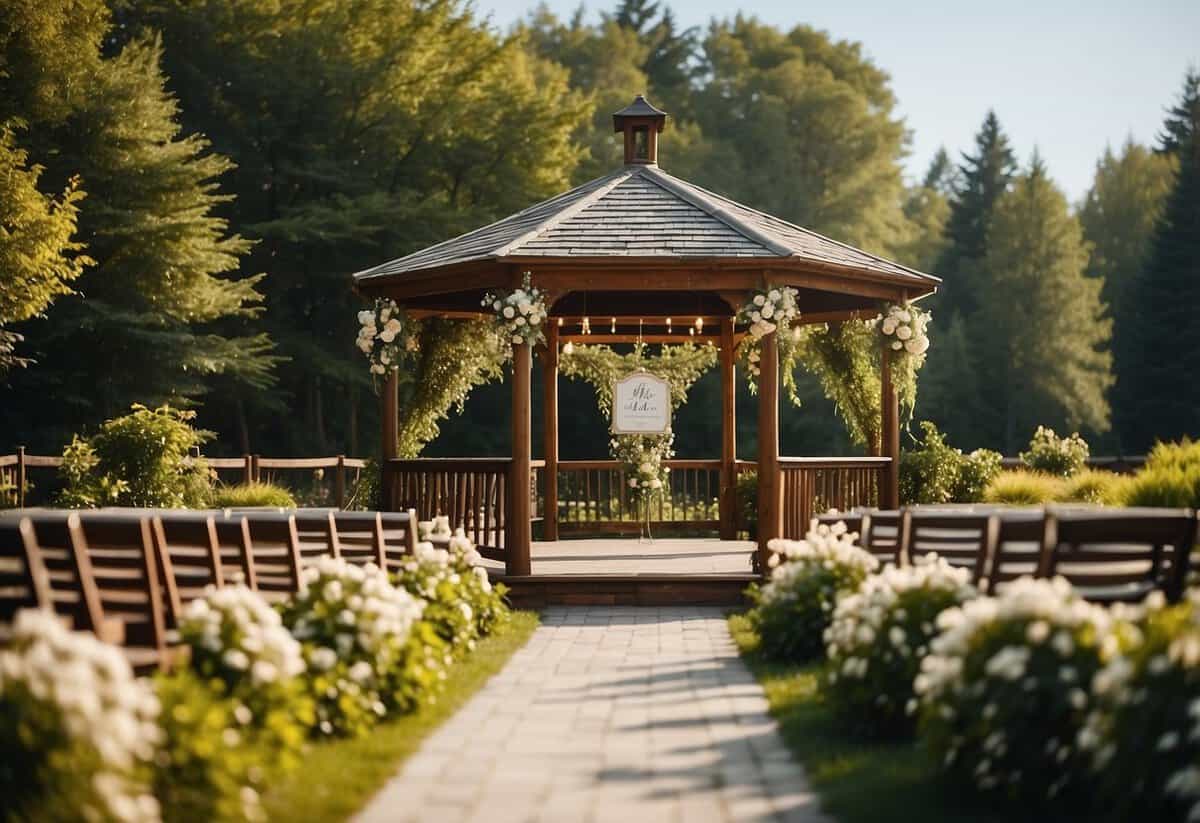
All-inclusive wedding venues can make planning your big day easier. These venues bundle many services together, like catering, decorations, and photography. This saves you time and stress.
With an all-inclusive package, you often get a better deal financially. Instead of hiring separate vendors, everything is included. This can be a savvy way to stay within your budget.
Another benefit is convenience. You won’t need to coordinate multiple vendors, which can be a headache. Everything is handled by one team, making your wedding preparation smoother.
Some all-inclusive packages even cover extras like DJs, flowers, and furniture rentals. These packages ensure all the details are taken care of, so you can focus on enjoying your special day.
When choosing an all-inclusive package, check what’s included and if it fits your needs. This way, you get the best value and have the wedding of your dreams.
4) Ask About Preferred Vendor Lists

When choosing a wedding venue, ask if they have a preferred vendor list. These lists usually include trusted vendors like caterers, photographers, and florists. Using vendors from the list can make planning easier.
Preferred vendor lists often feature businesses that the venue has worked with before. This means they know the space well, which can lead to a smoother event.
Having vendors who are familiar with the venue can save you time and reduce stress. They understand the venue’s layout and rules, making setup and coordination more efficient. Your venue might even offer discounts for using their preferred vendors.
Discuss these options with your venue coordinator early in the planning process. This way, you can book the best vendors before they are fully booked.
5) Book Early to Save Money
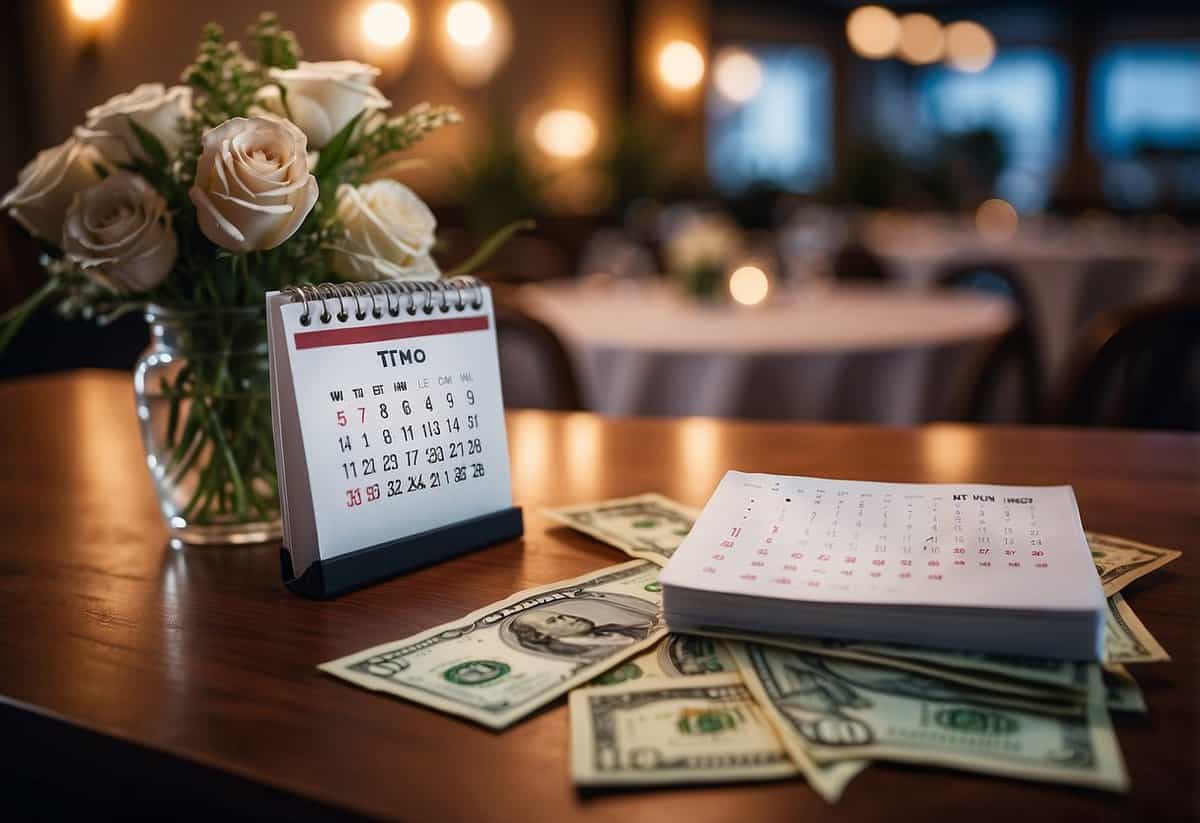
Booking your wedding venue early can help you save a lot of money. Popular venues get booked up to 12-18 months in advance or more. By booking early, you can lock in current prices and avoid future price hikes.
Spreading out payments over time is another plus of early booking. This helps you manage your budget better. You don’t need to pay a huge amount all at once.
If you have your heart set on specific months like June or October, booking 12-14 months ahead is smart. For other months, aim for at least 9-12 months in advance. This ensures you get the date and venue you want without breaking the bank.
6) Check for Noise Restrictions
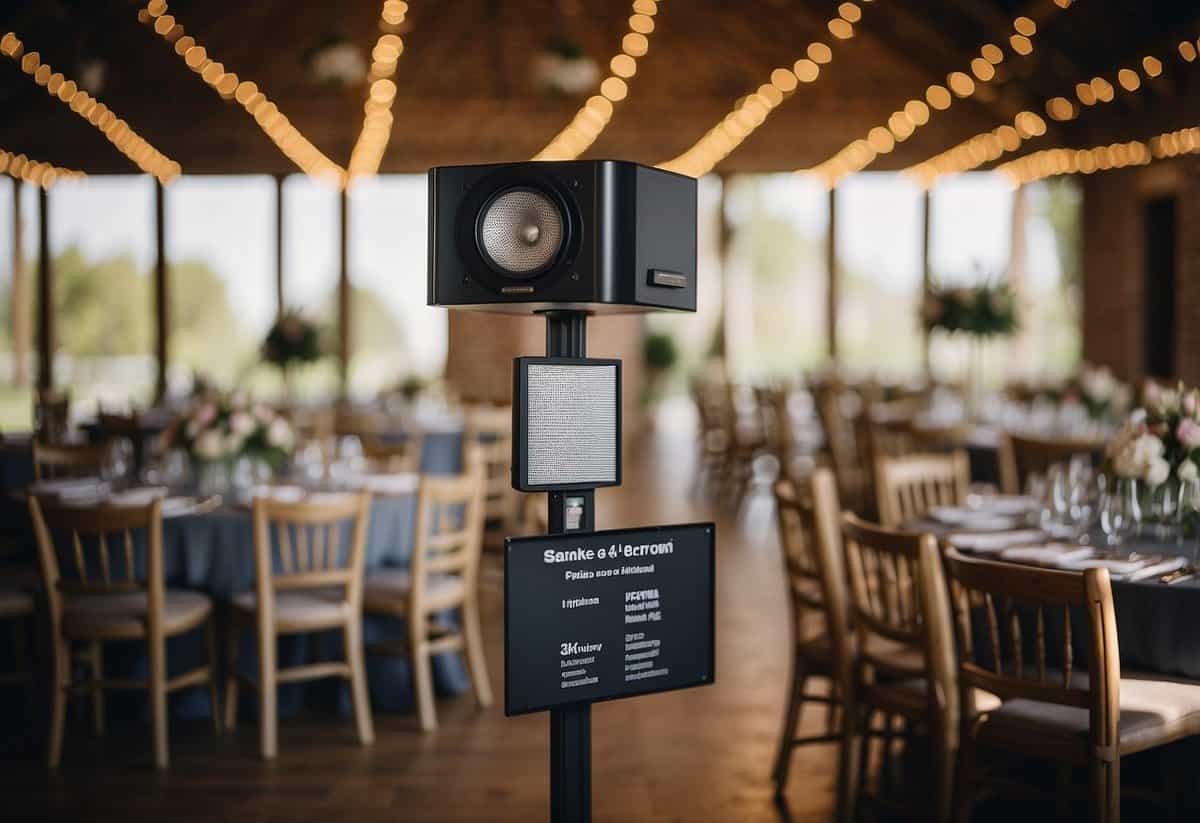
Noise levels at wedding venues can affect the enjoyment of your big day. It’s important to ask if there are any noise restrictions in place.
Many venues have sound limiters to control the volume of music. These devices automatically lower the volume if it goes too high.
Some venues have strict noise rules due to nearby residents. Always check if there are specific times when you must reduce noise levels.
Understanding these rules will help you plan your event better. So, make sure to ask your venue about any noise restrictions before booking.
7) Review the Venue’s Cancellation Policy
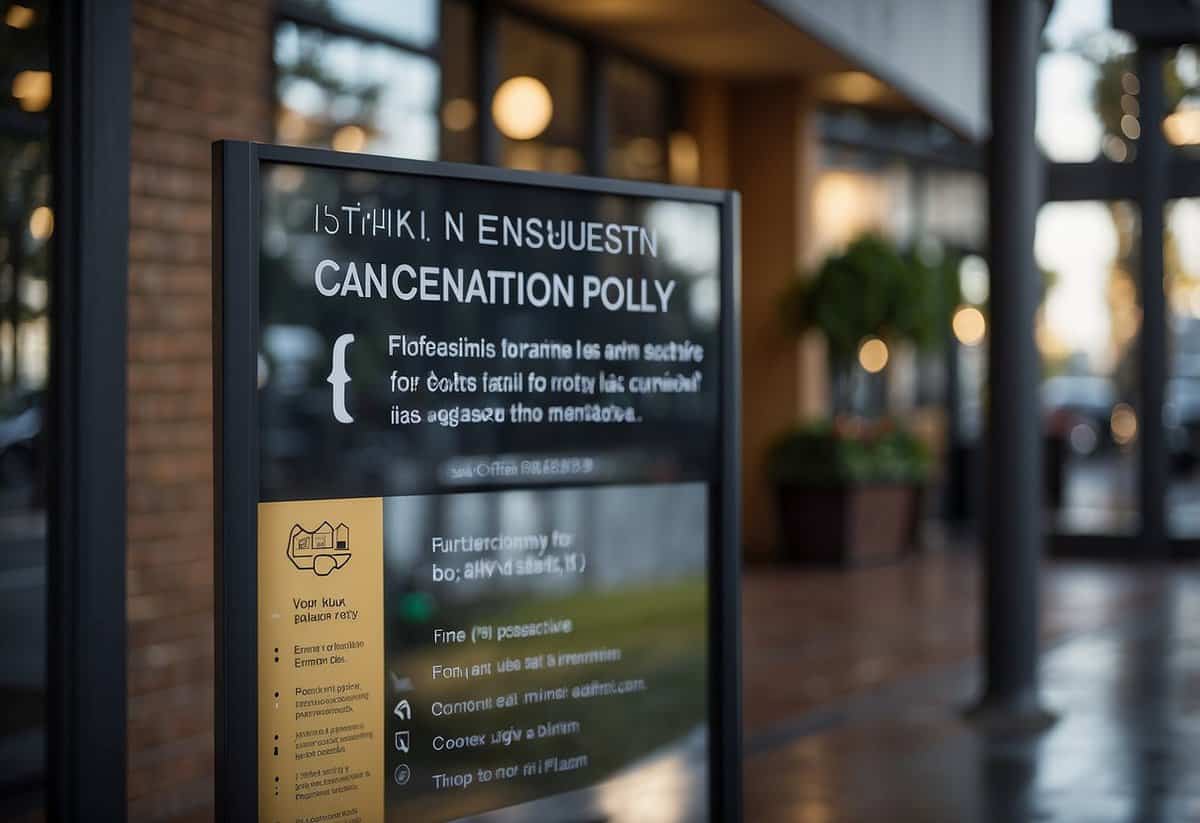
It’s crucial to read the venue’s cancellation policy before signing the contract. This policy will explain what happens if you need to cancel or reschedule your wedding. Look for details about deadlines and potential penalties.
Some venues might offer a full or partial refund, while others could keep your deposit. Knowing this helps you avoid surprises later. Make sure the policy is clear and in writing.
If you have wedding insurance, check if it covers cancellations. This might save you money if something unexpected happens. Don’t be afraid to ask the venue for more details if anything is unclear. It’s your big day, so make sure everything is understood.
8) Visit the Venue at the Same Time of Day
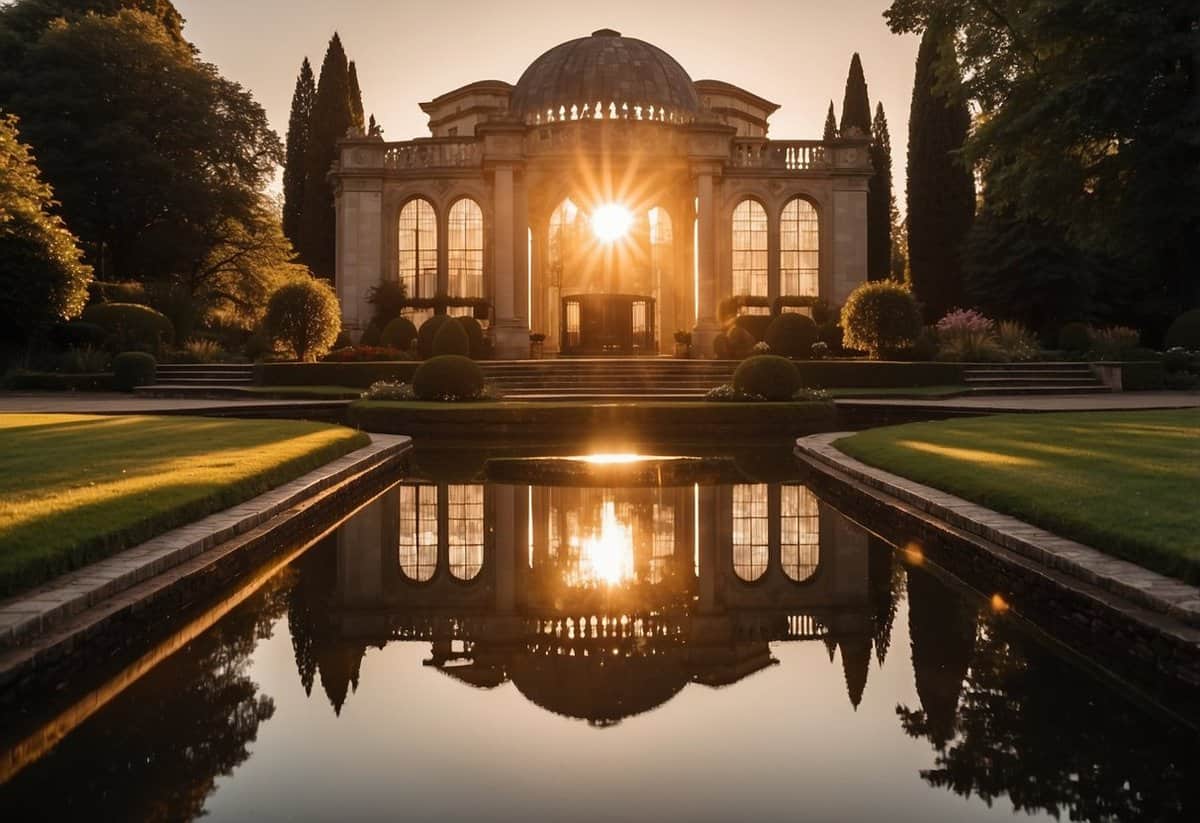
When planning your wedding, it’s important to visit the venue at the same time of day as your event. This helps you see how the lighting will look.
Natural light can change the entire feel of a space. By visiting at the same time, you can decide where the best spots for photos will be.
You’ll also notice if there are any shadows or areas that need extra lighting. This will help you plan your decorations and setup more effectively.
Taking this step ensures your special day looks just the way you envision it.
9) Look for Venues with Outdoor Options
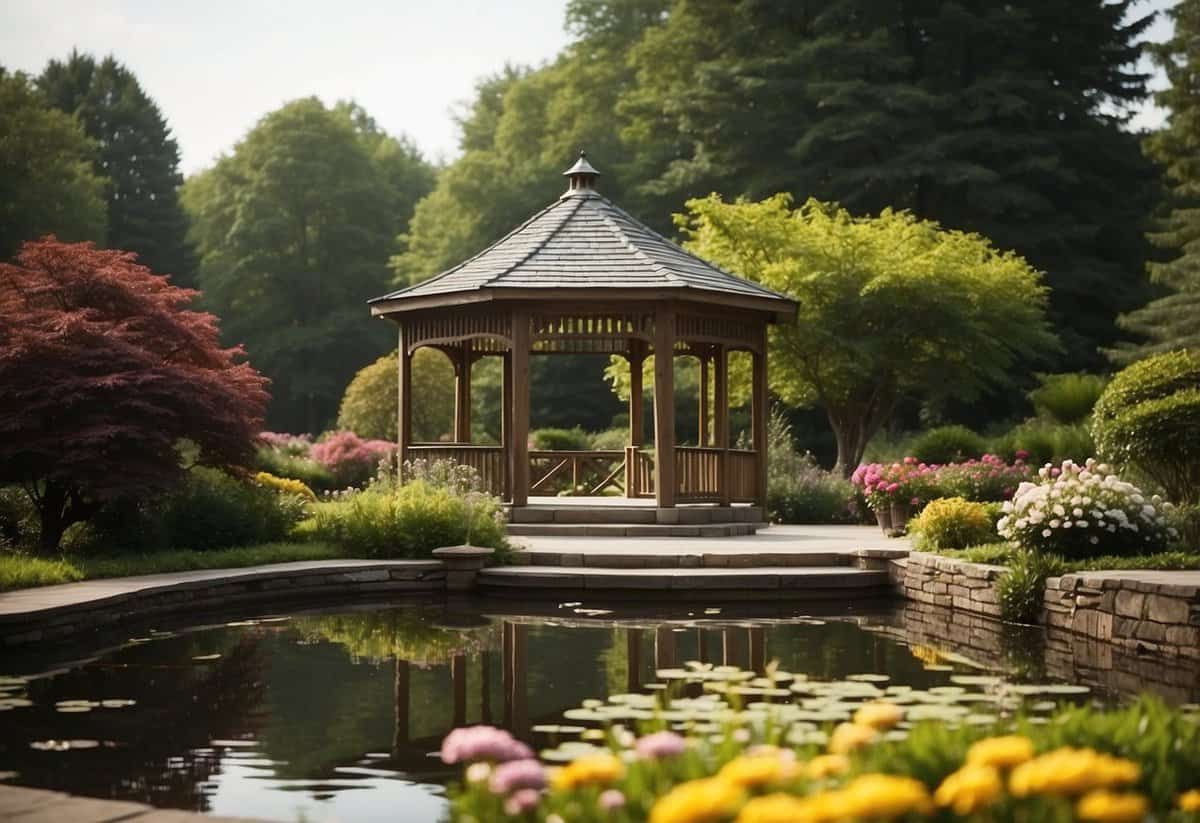
Outdoor wedding venues can offer stunning views and fresh air, making your big day even more special. When planning an outdoor wedding, it’s important to ask about backup options in case of bad weather.
Many venues offer both indoor and outdoor spaces. This flexibility can help ensure your celebration goes smoothly. Also, think about the setting. Do you want vineyard views, a garden, or a beach backdrop?
Another key factor is the venue’s facilities. Check if they have the necessary amenities like restrooms, power for lighting and music, and seating arrangements. This can help make your wedding day comfortable for everyone.
Remember to consider accessibility for all your guests. Ensure there are easy paths and ramps if needed. Outdoor weddings can be magical, but planning is key to making sure everything works out beautifully.
10) Ensure Adequate Parking Facilities
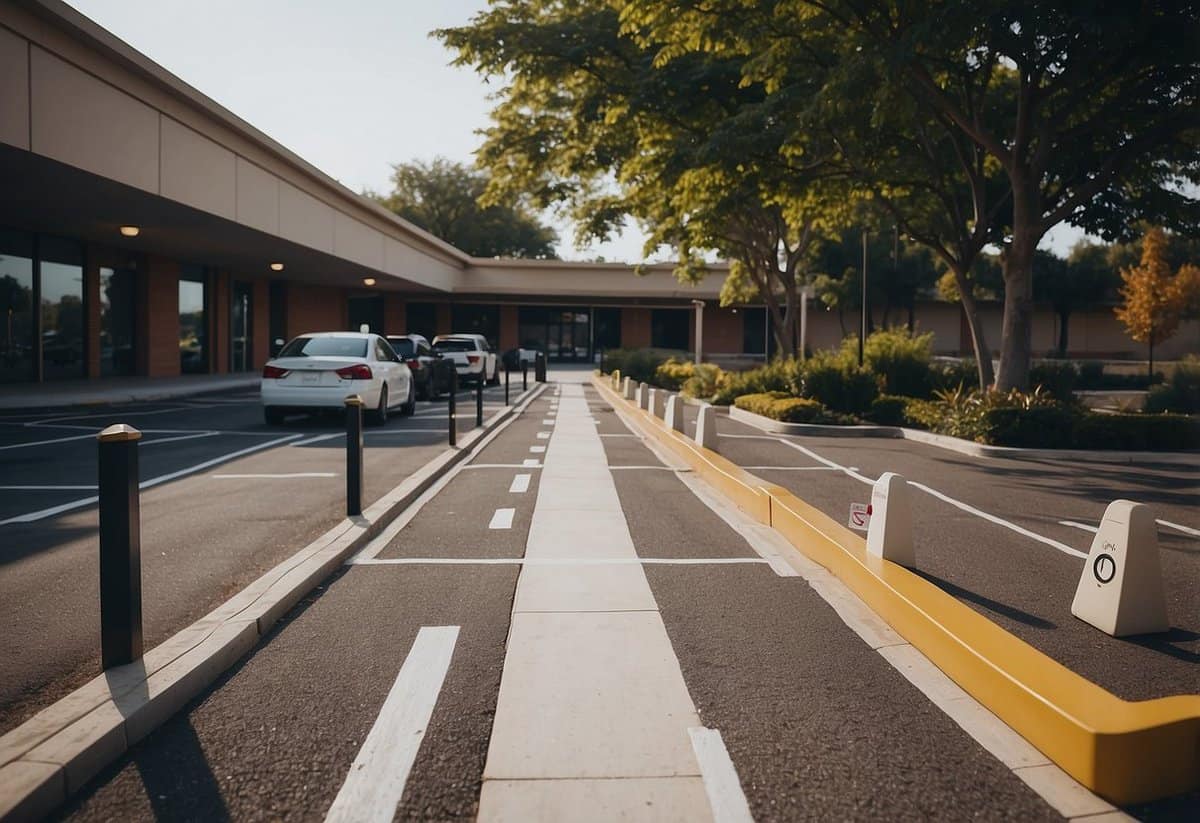
It’s vital to make sure your wedding venue has enough parking for your guests. Consider the number of attendees, including vendors and family. Check if the parking area is easy to access and well-maintained.
If your venue is in a rural area, ensure the parking space is usable in any weather. Mud or rough ground can make parking difficult.
Think about having parking attendants. They can help direct cars and make sure the parking area is used efficiently. Consider reserving spaces for important guests like family or the bridal party.
Always inform guests about parking options. Provide clear directions and any necessary details in advance. This will help avoid confusion and make their arrival smoother.
Choosing the Perfect Wedding Venue
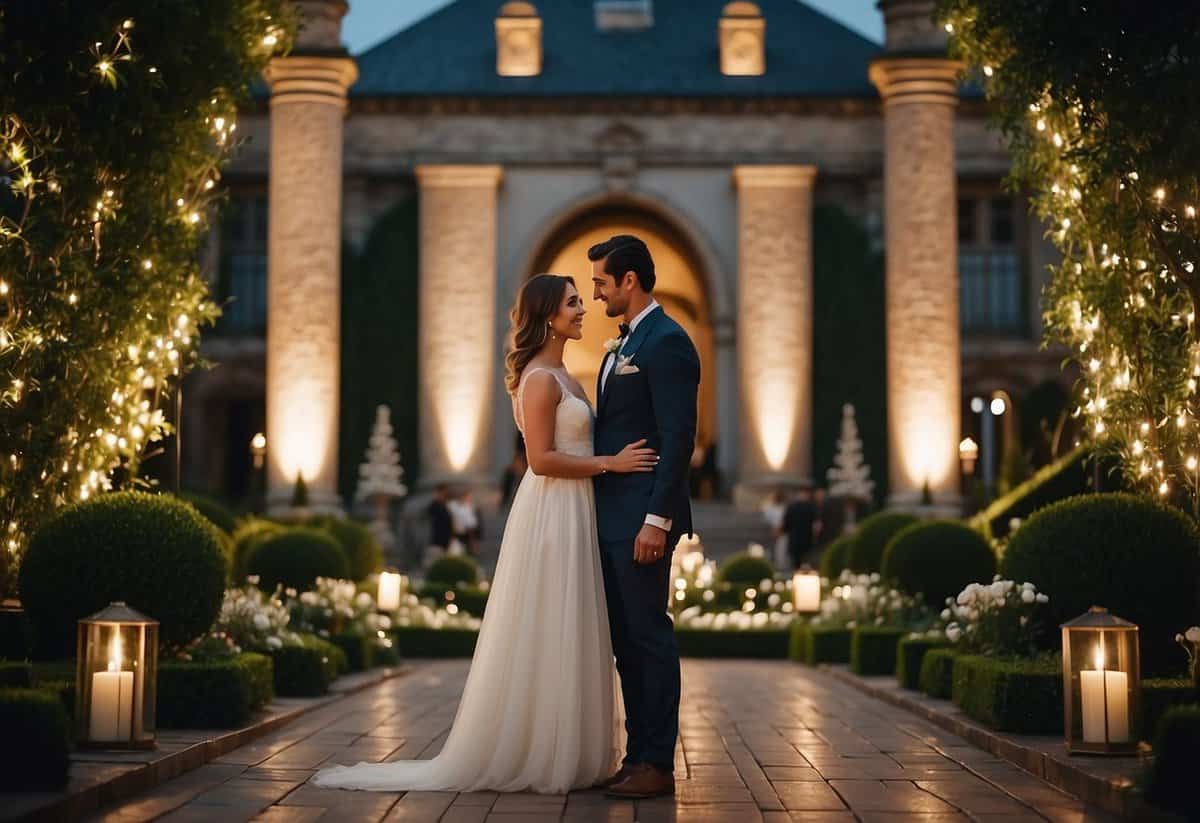
Choosing the perfect wedding venue involves understanding your wedding style, determining your budget, and visiting potential venues to ensure they meet your needs. Each step is essential for finding a venue that aligns with your vision and preferences.
Understanding Your Wedding Style
First, think about your wedding style. Do you envision a rustic barn, a modern loft, or a classic ballroom?
Identify what kind of atmosphere and theme you want. If you prefer a casual, outdoor setting, look for gardens or parks. For something more formal, consider hotels or country clubs. Knowing your style helps narrow down options quickly.
Also, consider the size of your guest list. Smaller, intimate weddings fit well in cozy venues. Larger gatherings need more spacious locations. Make sure the venue can comfortably accommodate your guests.
Lastly, check if the venue fits your color scheme and decor ideas. Some places offer a blank canvas, while others have a distinct look. Think about flexibility and whether the venue allows you to bring in your own decorations.
Determining Your Budget
Budgeting is crucial in choosing your wedding venue. Start by knowing how much you can spend on the venue alone. Remember, the venue cost isn’t just the rental fee. You also have to account for things like:
- Catering: Some venues have in-house catering and will charge per plate.
- Décor and Rentals: You might need to rent tables, chairs, or linens.
- Additional Fees: Include service charges, taxes, and potential overtime costs.
Ask for detailed quotes from venues, so you understand what’s included. This helps you avoid unexpected expenses. Compare the quotes to see which venue offers the best value.
Check for package deals that might include catering, decorations, or even a wedding coordinator. These can sometimes be more cost-effective.
Visiting Potential Venues
Once you’ve identified your style and budget, it’s time to visit potential venues. Make appointments to tour each one.
When visiting, note the cleanliness and maintenance of the venue. A well-kept place often indicates good management.
Ask about backup plans for outdoor weddings. If it rains, is there an indoor space available? This is crucial for a smooth event.
Also, consider the location. It should be accessible to most guests, with ample parking and nearby accommodations if needed.
Key Questions to Ask
During your visit, ask these key questions:
- What’s included in the rental fee?
- Are there any restrictions on decorations or vendors?
- What’s the capacity limit for the venue?
- Is there a preferred vendor list?
These questions help ensure the venue aligns with your needs and expectations.
Logistics and Details
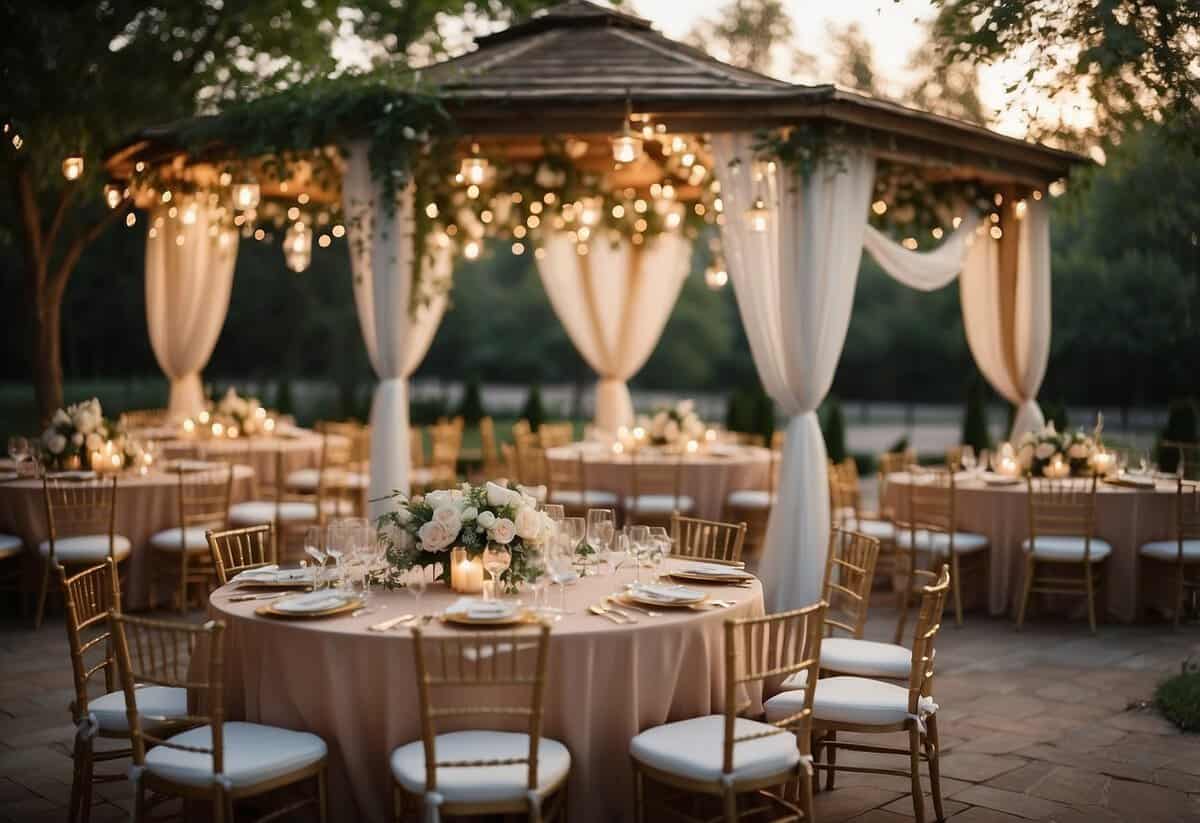
Choosing the right wedding venue involves more than just picking a beautiful location. Pay attention to guest capacity, space layout, parking, transportation, and weather considerations.
Guest Capacity and Space Layout
One of the first things to check is if the venue can accommodate your guest list. Look at the venue’s maximum capacity to ensure everyone can comfortably fit.
Visit the venue to see the layout. Think about where the ceremony, reception, and any other activities will happen. Use a floor plan to visualize where tables, dance floors, and stages will go.
Have a plan to keep foot traffic flowing smoothly, with clear paths between areas. This helps avoid crowding, especially during key moments like the ceremony entrance or cake cutting.
Parking and Transportation
A great venue has enough parking for your guests. Check if the venue offers parking or if there’s a nearby lot. Also, make sure the parking area is well-lit and safe.
Think about guests who might not drive. Arrange shuttle services or give information on public transportation options. This can make traveling easier, especially if the venue is hard to find.
Consider adding valet parking for convenience. This can be especially helpful for elderly guests or those who might have trouble walking long distances.
Weather Considerations
Weather can make or break your big day. If you’re planning an outdoor wedding, always have a backup plan for bad weather. Ask the venue if they have indoor spaces or tents available for such events.
Look at the venue’s indoor spaces to ensure they can fit all your guests if rain or extreme heat strikes. Make sure there’s good ventilation and heating or cooling systems to keep everyone comfortable.
Don’t forget to think about seasonal weather patterns. If your wedding’s in the summer, have fans or air conditioning. For winter weddings, ensure there’s proper heating. Planning ahead can save you from weather-related stress.








